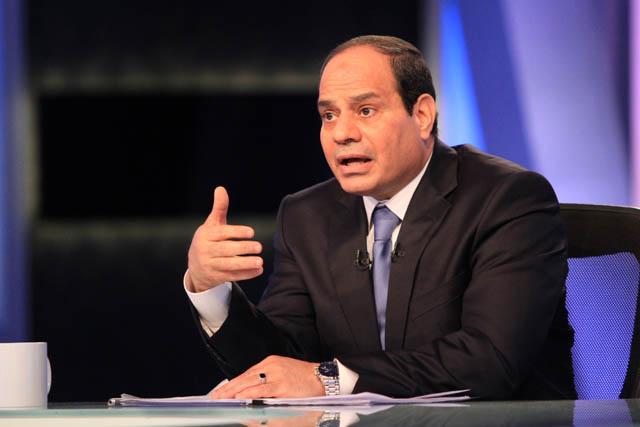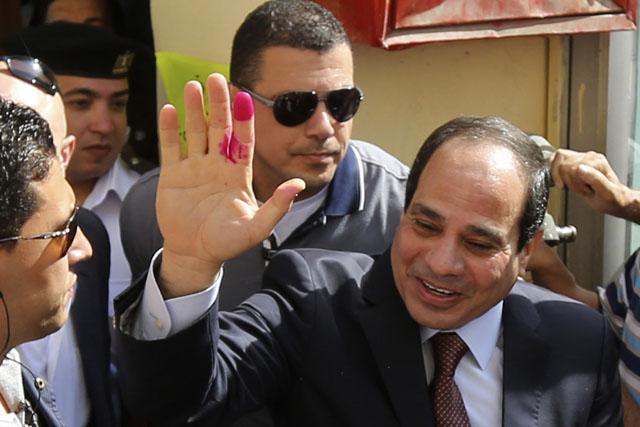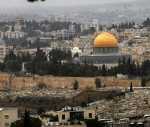CAIRO — Three years after a popular uprising forced out ex-general Hosni Mubarak, Egypt’s army is again pushing a commander to stand for president after he ousted the first civilian head of state.
On Monday, the army endorsed its Field Marshall Abdel Fattah Al Sisi’s candidacy for an election he is expected to win amid a strong nationalist fervour since he overthrew president Mohamed Morsi.
In just over six months, Sisi has managed to win accolades from a vast section of Egyptians for leading the ouster of Morsi and crushing the Muslim Brotherhood Movement to which the Islamist belongs.
Morsi was toppled after one turbulent year in office following mass street protests amid allegations of grabbing power and ruining an already deteriorating economy.
Announcing its backing for Sisi, the Supreme Council of the Armed Forces said that “the people’s trust in Sisi is a call that must be heeded as the free choice of the people”.
Sisi is soon expected to resign as army chief and announce his candidacy in a presidential election scheduled to be held by mid-April.
A victory for the 59-year-old would keep alive a tradition of Egyptian presidents being drawn from the armed forces.
Mubarak and all of his predecessors came from the military, starting with the charismatic colonel Gamal Abdel Nasser, who ruled Egypt between 1954 and 1970.
And after Mubarak’s ouster, it was Field Marshal Hussein Tantawi who ruled Egypt until the election of Morsi in June 2012. But Tantawi’s tenure was marred by deadly street protests before Morsi was elected.
Sisi is riding a wave of nationalist fervour, however, amid a heavy handed crackdown on Morsi’s supporters, which according to Amnesty International has left at least 1,400 people dead.
To Sisi’s supporters, he is the best option for ending three years of political instability following the 2011 uprising that ended Mubarak’s reign.
And to his critics and experts it is the military’s decades old iron grip on Egypt that has once again brought an army man to the forefront after civilian leaders blew their shot at power.
“There is definitely a political vacuum with no civilian parties able to throw up a good leadership,” said Mohamed Ghorab, an activist from a group that campaigns against military trials of civilians.
“We saw this with the Muslim Brotherhood, [and] they failed. We hoped that another liberal party would come up and fill the vacuum, but that didn’t happen.
“Hence given the backing from a section of the society, the military is now filling the vacuum,” he said in his personal capacity.
‘Old demons of repression’ returning
Since Morsi’s ouster, Sisi has emerged as a nationalist icon, but simultaneously Egypt is also witnessing the return of the feared security services which were widely hated under Mubarak.
In recent months a deadly crackdown that began against Morsi’s Brotherhood has widened, with activists who spearheaded the anti-Mubarak revolt finding themselves behind bars.
Top anti-Mubarak campaigners Ahmed Douma, Ahmed Maher, Mohamed Adel and Alaa Abdel Fattah have been detained for organising protests the military-installed authorities say were illegal.
The authorities had defended the removal of Morsi on the back of mass street protests against his rule.
“Their current policies are a betrayal of all the aspirations of bread, freedom and social justice” of the anti-Mubarak revolution, said Hassiba Hadj Sahraoui of Amnesty International in a statement marking the third anniversary of the 2011 revolt.
She charged the security forces had also not been held to account for using “excessive” force in dealing with protests staged by Morsi’s supporters who continue to demand his reinstatement.
Analysts say the repressive old regime of Mubarak is returning to the fold, but that it is unleashing even more force on dissent than before, now that the military is clearly at the helm.
“Even if the military authorities try to maintain a democratic face, it is now clear that Egypt is being overtaken by old demons of repression, authoritarianism and personal power,” said Karim Bittar of the Institute of International Strategic Relations.
“The hopes aroused by the revolution of January 25, 2011 among the liberals and progressive [people of Egypt] are about to go up in smoke.”




















